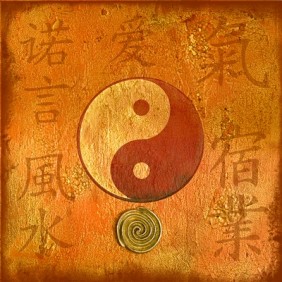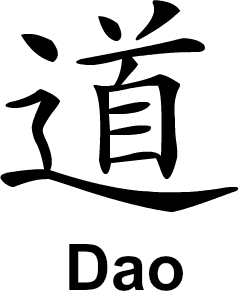By Michelle La Vone
After waking up to near blindness 13 years ago, JMichael Wood delved into the Eastern Chinese healing art of Medical Qigong. Now a certified Master of Medical Qigong, he’s using his hands, mind and heart to help others realize their inner potential for health and happiness.
It’s 9:30 a.m. Saturday morning and J. Michael Wood is at his kitchen counter in Nashville, Tennessee, using a turkey baster to extract a tincture from a dark, swampy jar of herbs soaked in vodka. The ingredients in the murky concoction remain largely a mystery to Wood, but as a diehard believer in alternative medicine and energetic healing he trusts that these daily drops of tonic will keep his kidneys strong. Plus, Qigong Master Duan Zhi-Liang in China uses the same formula and is 104 years old. Wood plans to reach 150.
He’s got a few years left before reaching that half-way mark, but he’s already drinking eight grams of He Shou Wu every day to darken his gray and sandy-brown hair in addition to taking handfuls of vitamins. He has 26 vitamin supplements within reach of his breakfast table and by his stove he keeps a blender and a stock of protein powder. 
As a practitioner of Qigong—defined by Merriam-Webster as an “ancient Chinese healing art involving meditation, controlled breathing and movement exercises”—Wood spends 10 to 12 hours a day meditating, teaching Qigong, holding clinical sessions and doing a bit of financial consulting to supplement his income.
He knows from past experiences what it feels like to be completely exhausted and mentally rundown, but Qigong has taught him that correct breathwork, proper nutrition and full awareness of one’s own power to heal can revolutionize physical and emotional well-being.
He’s learned to “protect” himself from energy vampires (people who drain others’ energy), to gather enough breath to power through strenuous hikes, and to relinquish any emotional ties he has to bad memories. Qigong philosophy holds that grief, jealousy or anger buried and held unconsciously can rob one’s potential health and happiness. Qigong practitioners believe emotions are stored in various parts of our bodies, rendering any disease traceable to toxic emotions experienced a minute ago, a month ago, or even 30 years ago. For Wood, feelings of betrayal crystallized into sickness that would eventually steal from his sight as he slept.
Roots
Wood, born in Nashville on July 30, 1945, was raised in a “very erudite environment.” He says he and his siblings learned “at the feet of masters.” His mom graduated as a salutatorian with degrees in concert piano, French and Spanish; he recalls his father having an IQ of 168 and a photographic memory. Wood, then, is a fitting son, a man whose friends and family regard as highly intelligent.
 Denise White, Master of Medical Qigong, says Wood is “very interested in the cutting edge of what we know and in pushing the outside edge of that envelope as far back as we can.” Coupled with this voracious appetite for knowledge is an impenetrable desire to use what he knows to benefit others.
Denise White, Master of Medical Qigong, says Wood is “very interested in the cutting edge of what we know and in pushing the outside edge of that envelope as far back as we can.” Coupled with this voracious appetite for knowledge is an impenetrable desire to use what he knows to benefit others.
He has a way of speaking that attracts people to him, according to Wood’s ex-wife Bonnie Hill. “You just get caught up in whatever he’s talking about,” she says. She believes Wood’s success as a therapist stems from his own integrity to the art of healing.
As a 33rd degree Free Mason who highly values integrity, Wood wouldn’t disagree. “It’s not my job to prove anything to anybody,” he says. “I’ve found simple techniques to let people experience things within themselves.”
Generosity
He’ll show you the presence of your energy field at the dinner table, holding a pendulum over the palm of his hand, watching it spin around, and encouraging you to do the same. He’ll hand you a meteor stone and tell you to keep it in your pocket, always, to protect yourself from cellphone radiation.
Start talking about your physical problems and White says he’ll have you “down on the floor, on the couch or wherever you are in the restaurant,” to try and alleviate your pain. Offhandedly mention that you are very distressed about something and within two minutes you’ll be tapping your chakras and chanting, first with a suppressed laugh but then furrowed eyebrows: SONG KONG TONG, BING CHAN YII to dissipate the emotional charge around the issue.
Actually, sometimes you don’t have to say anything at all and he’ll still know.
“You didn’t know you were a pane of glass, did you?” he says with a smile that spreads deeply into his cheeks. He speaks slowly and deliberately with a distinct southern accent. “We all are, to somebody trying to look.”
School and War
Growing up, he admired his uncles’ jobs as chiropractors. At age 13 he declared his life goal accordingly. But after a high school career spent “rockin’ and rollin’,” Wood enrolled in a pre-med track at Middle Tennessee State University to fulfill his dad’s wish for him to get a liberal arts education instead of enrolling directly in chiropractic school.
College proved no more intellectually stimulating for a young man with a quick mind and Attention Deficit Disorder than primary school had been, so he dropped out.
“It was boring, and I just didn’t care, so I ended up wasting some of his [dad’s] money and a lot of my time,” he says. He was promoted as the youngest manager of the shoe store he worked at, but it wasn’t long before a draft notice arrived for the Vietnam War.
He knew things were rough in Vietnam, so he envisioned himself in logistics. At least they don’t shoot the guy that’s handing out uniforms, he thought. He never expected to be led into a room postered with “Loose lips sink ships,” and, “What you see here stays here.”
A top 10 percent military exam score had earned JMichael a place in a highly esteemed branch of military service: intelligence. The catch? He had to agree to do a job recruiters couldn’t tell him anything about. He agreed.
He won’t divulge details of his year in Turkey or the three years surrounding it. He will acknowledge they were some of the most interesting times of his entire life. “It was nothing shy of incredible for a 21 year old to get a peek behind the curtain and be part of what is really happening in the world instead of what you see in the newspapers,” he says.
Career Choices
His service inspired him to pursue anything he wanted to when he got back: he wanted to run his own business and be his own boss. Eventually he would get there. In the meantime, he joined his dad and brother in the insurance business and learned many aspects of the industry including financial consulting. On the side, he taught himself reflexology.
“He was very dedicated to his career, and he worked very hard and made good money. But in the back of his heart the chiropractic stuff was always there, you could tell,” says Hill.
He turned to Qigong after experiencing a stroke one summer night in 1999. He had no warning signs, and now he was almost blind, feeling like he was looking through pinholes. His self-taught knowledge of reflexology and neurovascular holding points recovered most of his vision, but he continued to have transient ischemic attacks.
He didn’t know why, and his neurologist didn’t know why. Qigong masters all around the world did. Today, as a Master of Medical Qigong himself, he also knows.
The insurance business was as stressful as any job, with the added feelings of betrayal, helplessness and loss when his business partners stole money and the bank expected Wood to repay it. All $850,000. “It took 10 to 12 years of my life living at the foot of the cross where I had to watch every penny I made [to pay it all back]. And I made a lot of money in those years,” he says matter-of-factly.
That painfully frustrating experience added to a long list of emotional downs everyone has throughout their lives: failed relationships, failed business dealing, failed personal goals, etc. Wood’s body had endured years’ worth of stress and the stroke—according to Qigong—was his body’s way of saying “enough.”
New Light
When Wood attended the National Qigong Association Meeting in 2000, one year after his stroke and still with a blind spot in one of his eyes, he approached Qigong Master Chunyi Lin. It was a meeting that changed his life.
Within minutes, Wood watched the blind spot reduce to 30 percent its original size as the master did energetic healing work. He knew, then, that this was his calling. He began to pursue Qigong.
“He was always going in that direction,” says Hill. “It was exactly what he needed—exactly what he was looking for all these years.”
Wood began to train under the master, a path that eventually earned him a Masters of Medical Qigong from the International Institute of Medical Qigong (IIMQ) in California, among many other accreditations. He taught medical Qigong as a post-graduate course at the private Logan College of Chiropractic and studied in China under Master Duan Zhi-Liang in addition to taking advanced medical Qigong training in cancer therapy from Dr. Jerry Alan Johnson, dean of the IIMQ. Now Wood holds workshops throughout the U.S. and does clinical work at his home office in Nashville, where he invited me to the interview.
When I look at him, his smile is as soft as an impressionist painting; he emanates warmth. He’s sitting in front of me, cross-legged, hands together in his lap.
“We all want to save the world,” he says. “Well, let me tell you—the quickest path is getting in and cleaning up your own world.”
My world is fine, I think. But when Wood asks me to think about the last thing I was angry about, he senses something I don’t. “You feel that following your right arm? That’s a little bit of anger and fear.”
I hadn’t thought anything about my right arm, but now blood rushes there from my head as I feel my skin turn pink. He responds with a smile that is also a laugh, and within mere minutes I find myself chanting Song Kong Tong.
When it’s over, he excitedly looks at me with large bluish-grey irises and asks me to consider how I’m feeling. He boyishly smiles and shuffles his feet on the ground, waiting for my affirmation. Maybe he’s on to something—he certainly thinks he is.
I nod and smile.
He throws his hands up in the air and says, “That’s my job, I love it. I have the best job in the world!”


